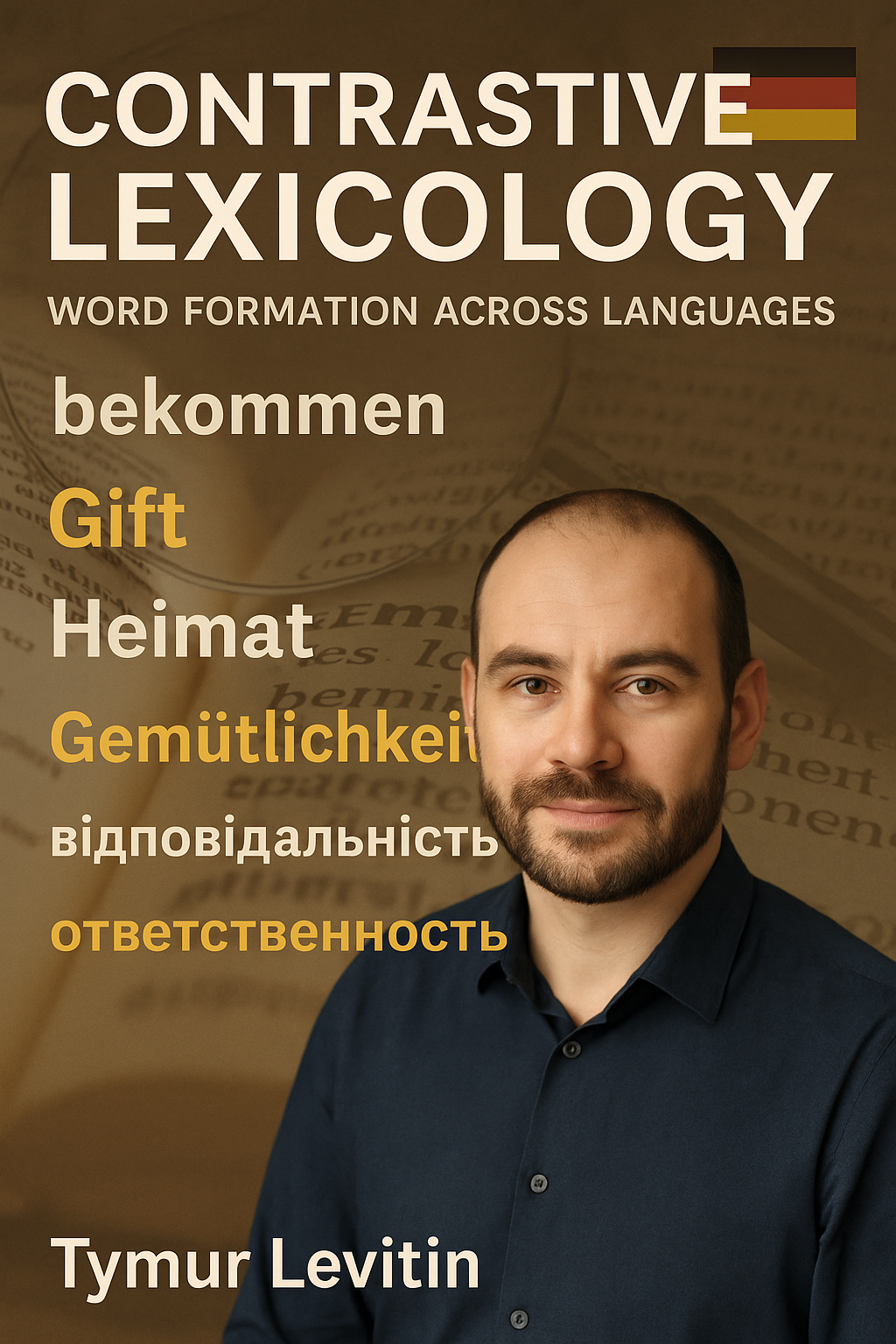“To learn a language is to have one more window from which to look at the world.” — Chinese proverb
Lexicology is not only the study of words but also the study of how different languages create, combine, and transform them. Contrastive lexicology gives us a chance to see languages side by side — to notice similarities, differences, and the hidden logic behind each system. German, English, Ukrainian, and Russian offer rich material for such a comparison.
German Word Formation and Its Precision
German is famous for its compound words. They give the language a unique power to create precision. The word Donaudampfschifffahrtsgesellschaftskapitän — “Danube steamship company captain” — looks overwhelming, but it is logical: every element adds meaning.
In English we would say captain of a steamship company. Ukrainian offers капітан пароплавної компанії. Russian has капитан пароходного общества. The words look different, but the principle is the same: combining roots and modifiers to build complex meaning.
This structural clarity makes German an excellent lens for studying how words can expand their meaning through composition. (Explore more on Studying German easy).
Slavic Languages in Comparison
In Slavic languages, word formation often works through prefixes and suffixes rather than long compounds. Ukrainian and Russian are especially rich in this respect.
For example:
- Ukrainian передбачити (“to foresee”) is built from перед- (“before”) and бачити (“to see”).
- Russian предусмотреть follows the same pattern, though the sounds and style differ.
Both languages create meaning through morphology, while German and English more often rely on composition or phrasal constructions.
For students and translators, such parallels are crucial. They show not only where words “match,” but also where their cultural weight differs. (See Ukrainian Lexicology: Language, Identity, and Meaning).
Semantic Challenges and False Friends
Every language has “false friends” — words that look or sound similar but mean something different.
- German bekommen means “to receive,” not “to become.”
- English become means “to turn into something.”
- Ukrainian отримати and Russian получить give the correct sense of “to receive.”
These examples remind us that translation is not about replacing words mechanically. It is about understanding the real meaning behind the form. (See also English Lexicology: The Logic of Words in the World’s Lingua Franca).
Lexicology in Translation Practice
Contrastive lexicology is not abstract theory — it is the daily reality of translators.
Consider the phrase Verantwortung übernehmen.
- In English: take responsibility.
- In Ukrainian: взяти на себе відповідальність.
- In Russian: взять на себя ответственность.
The message is the same, but the logic shifts. German highlights the act of “assuming responsibility,” English the act of “taking,” and Slavic languages the image of “carrying something on oneself.”
This is why translation is never a mechanical act. It is a cultural choice. Learn more about this approach on my teacher’s page.
Beyond Words: Culture in Contrast
Some words carry more than a dictionary meaning — they are cultural codes.
- German Heimat reflects not just “homeland” but a deep emotional bond with the place one belongs to.
- Ukrainian Батьківщина (“land of the fathers”) emphasizes heritage.
- Russian Родина highlights “birth” and origin.
- English homeland is functional but less emotional.
Each word carries identity. And when we compare them, we see how languages preserve different aspects of human experience. (For related discussion, see Translation Theory and Practice).
Conclusion
Contrastive lexicology is more than a science of words. It is a science of identity. By comparing German, English, Ukrainian, and Russian, we see not only how words are formed but how cultures think, value, and communicate.
At Levitin Language School and Start Language School by Tymur Levitin, we believe that learning a language means learning its culture — because words are never just words.
For more insights, visit our sites:
Author’s work by Tymur Levitin — Founder, Director, and Head Teacher of Levitin Language School / Start Language School by Tymur Levitin
© Tymur Levitin














